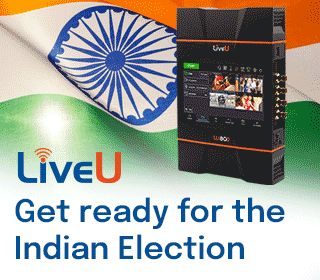Globe Trotting
Ofcom Proposes Broadband Universal Service Providers
In March, the UK Government introduced legislation for a broadband universal service obligation (USO), which will give eligible homes and businesses the right to request a decent broadband connection. Ofcom is responsible for implementing the USO.
Proposed providers
In June, we asked telecoms companies to put themselves forward as potential universal service providers, and eight companies did so. We made our decision based on the following criteria:
Can they finance the delivery of the service?
Would they cover more than 5000 eligible premises in each chosen local authority?
Would their proposed technology meet the technical specification?
BT, KCOM and Hyperoptic satisfied all three of these criteria. Hyperoptic subsequently withdrew its interest in being a universal service provider. The other companies – Airband, Bentley Walker, Broadway Partners, Quickline and Viasat – did not satisfy all three criteria.
So, we propose BT as the universal service provider across the whole of the UK excluding the Hull area, and KCOM for the Hull area. As this is a consultation, other operators still have the opportunity to come forward if they wish to be considered as a universal service provider.
Today’s consultation will close on 13 February 2019 and we intend to publish our final decision on designated providers and the rules by summer 2019. We expect consumers to be able request connections from the end of 2019.
What is the broadband USO?
The broadband universal service obligation (USO) will give people in the UK the right to request a decent broadband connection. Under the USO, eligible homes and businesses will be able to request a connection, where the cost of building it is no more than £3,400.
What is a decent broadband connection?
For the USO, Government has defined decent broadband as a service that can provide a download speed of 10 Mbit/s, and an upload speed of 1 Mbit/s upload. There are other technical features that ensure a quality service.
How is Ofcom involved?
Ofcom is implementing the broadband USO, by designating the universal service providers who must connect customers, and by setting the rules those providers must follow.
Legislation for the USO was brought in by the Government at the end of March 2018, and we expect customers will be able to request a broadband USO connection from the end of 2019.
Why is it taking nearly two years?
We are working to implement the USO as quickly as possible, but we needed time to put an appropriate process in place and to then to consult with the public on who should deliver USO connections, and the rules they must follow.
We also expect to consult on funding arrangements, including designing an industry fund to compensate the providers for any unfair costs, identifying who should contribute to the fund, and how it should be run.
The Government’s initial commitment was for the USO to be in place from 2020, so we are on track to deliver ahead of that deadline.
Is this similar to previous broadband rollout schemes?
Rollout schemes usually involve extending broadband networks to meet anticipated demand by homes and businesses.
However, under the broadband USO, homes and businesses which cannot already get a decent broadband connection will need to request a USO connection from the relevant providers.
Will everyone be eligible to receive a broadband USO connection?
Homes and businesses will only be eligible to receive a USO connection if they currently cannot receive an affordable service with download speeds of at least 10 Mbit/s and upload speeds of 1 Mbit/s from existing networks, if they are not due to receive such a service from a publicly-funded rollout programme in the year following their request, and the cost of connection is not more than £3,400.
Ofcom estimates that by the early 2020s, around 600,000 UK premises will fall into this category.
Will I need to pay?
A consumer or business will only have to contribute to the cost of a connection if it exceeds a threshold of £3,400. Above that level, properties can still be connected if they pay the excess costs or do some of the work themselves to help bring costs down.
There is also the option of using alternative technology, such as commercially available satellite outside the USO scheme, or keeping their existing service that delivers a lower speed.
To help as many USO connections as possible fall below the £3,400 threshold, the USO providers would be required to assume and aggregate the level of local demand. This potentially brings more connections under the reasonable cost threshold.
Why 10Mbit/s download and 1 Mbit/s upload speeds?
The Government set these minimum speeds for the USO when it introduced legislation in March 2018.
Ofcom’s research shows 10Mbit/s is the speed currently needed to meet an average household’s digital needs. This allows multiple users to use the internet at the same time, including web browsing, video streaming, video calling and gaming. (Lorazepam) However, we are aware these minimum speeds will need to increase over time.
Ofcom will review aspects such as these speeds when 75% of UK premises have taken up superfast broadband.
Will people get a broadband USO connection in 2020?
We expect consumers to be able to make requests for connections from the end of 2019.
Ofcom is consulting on how the process will work from request to connection. However, the connections may take time to deliver. For example, once an eligible home or business requests a connection, there will be a time period where the provider checks whether the cost of that connection falls under the £3,400 cost threshold. If it does, the connection can be planned and delivered. If the cost is over the threshold, there will need to be a discussion between the customer and provider about whether the customer would like to pay the excess costs or take an alternative option, with satellite broadband as a potential substitute.
The actual speed provided to a customer will vary throughout the day depending on factors like the number of people going online at busy times. Under the USO, other minimum requirements have been set, to improve consumer experience and reliability of connections.
Other factors, such as the quality of wiring in buildings, can also affect the service experienced by users. However, these factors are often outside the control of broadband firms. Ofcom’s mobile and broadband checker app is one tool that could help people and businesses who may be affected by such factors.— Ofcom









You must be logged in to post a comment Login